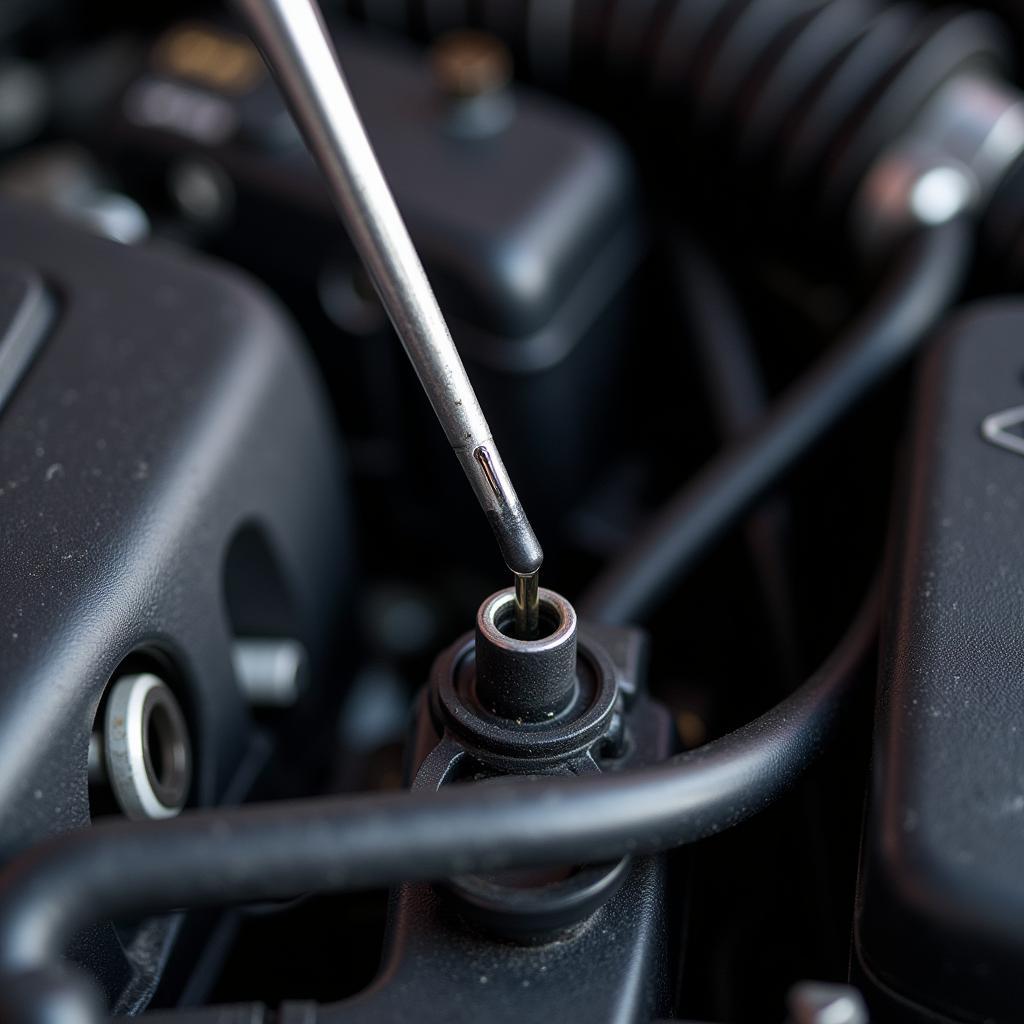Your car should feel peppier after a service, not sluggish. So, if you’re experiencing a decrease in performance after leaving the mechanic, you’re right to be concerned. While some minor performance dips can be normal, a noticeable slowdown usually points to an underlying issue. Don’t ignore it – addressing the problem quickly can save you from bigger headaches (and repair bills) down the road.
Common Reasons Your Car Feels Slower After Service
Let’s explore the most common culprits behind this frustrating issue:
1. Incorrect Fluid Levels
Fluids are the lifeblood of your car’s engine. Low or incorrect fluid levels, particularly engine oil, transmission fluid, and coolant, can significantly impact performance.
- Engine oil lubricates moving parts and prevents excessive friction. If it’s low, your engine has to work harder, resulting in reduced power and acceleration.
- Transmission fluid is vital for smooth gear changes. Low or dirty fluid can cause delayed shifts, slipping gears, and overall sluggishness.
- Coolant regulates engine temperature. If it’s low, your engine risks overheating, which can trigger a safety mode that limits power to prevent damage.
Expert Insight: “Always check your fluid levels after a service. Even a small discrepancy can affect performance. If you’re unsure, don’t hesitate to contact your mechanic.” – John Miller, Master Automotive Technician
2. Air Filter Restriction
Your engine needs a constant supply of air to function correctly. A clogged air filter restricts airflow, starving the engine of oxygen and hindering combustion. This results in reduced power, especially noticeable during acceleration.
3. Spark Plug Issues
Spark plugs ignite the air-fuel mixture in your engine’s cylinders. Worn, fouled, or incorrectly gapped spark plugs can lead to misfires or weak combustion, causing a loss of power, rough idling, and decreased fuel efficiency.
4. Fuel System Problems
From the fuel pump to the injectors, a well-functioning fuel system is crucial for optimal engine performance. A clogged fuel filter, failing fuel pump, or malfunctioning fuel injectors can restrict fuel flow, leading to a noticeable decrease in power.
Expert Insight: “If your car feels sluggish and you notice a decrease in fuel efficiency, it’s essential to have your fuel system inspected by a qualified mechanic.” – Sarah Jenkins, Certified Automotive Engineer
5. Sensor Malfunctions
Modern cars rely on a network of sensors to monitor and adjust engine performance. A faulty sensor, such as the mass airflow sensor (MAF) or the oxygen sensor (O2), can send incorrect data to the engine control unit (ECU). The ECU, in turn, may misinterpret these signals and adjust the air-fuel mixture or ignition timing incorrectly, leading to reduced power and other drivability issues.
6. Computer Glitches
Your car’s ECU is its brain, controlling a myriad of functions, including engine performance. Sometimes, software glitches or errors in the ECU can disrupt these functions, leading to performance issues like sluggish acceleration or reduced power.
7. Loose Connections or Components
During a service, it’s possible for connections or components to be accidentally loosened or left unsecured. For example, a loose vacuum hose, a disconnected sensor, or an improperly installed air intake hose can disrupt airflow and cause performance problems.
What to Do If Your Car Feels Slower After Service
-
Document the Symptoms: Note down when the problem started, how the car feels different, and any other unusual noises or behaviors.
-
Check the Simple Things: Before assuming the worst, check your fluid levels (oil, coolant, transmission fluid), and examine the air filter.
-
Contact Your Mechanic: Explain the issue and the steps you’ve taken. If the problem started immediately after the service, it’s likely related to the work performed. A reputable mechanic will address the issue promptly and at no additional cost.
-
Don’t Delay: Ignoring a performance issue can lead to more significant and costly repairs down the line.
By understanding the potential causes and taking swift action, you can resolve the issue and get back to enjoying a smooth and responsive ride.



